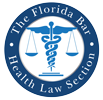LIFE SCIENCES
DEA
Hydrocodone combination products to be rescheduled as a Schedule II controlled substance.
On February 27, 2014 the U. S. Drug Enforcement Administration (DEA) published in the Federal Register a Notice of Proposed Rulemaking (NPRM) to move hydrocodone combination products (HCPs) from Schedule III to Schedule II. This NPRM proposes to impose the regulatory controls and sanctions applicable to Schedule II substances on those who handle or propose to handle HCPs. It could become law as early as May 2014. This means that these products:
-
Will have to be ordered with DEA 222s
-
Will need written prescriptions
-
Can’t be refilled
-
Must be Reported through ARCOS
Board of Pharmacy
Board of Pharmacy Moving forward with adoption of USP 797 for Sterile Compounding
The Board of Pharmacy continues to move toward adoption of USP 797 as the standard for sterile compounding. This will amend and replace the current sterile compounding Rule 64B16-27.797, FAC. The Board is also moving toward adopting USP 795 for non-sterile compounding. Florida pharmacies performing sterile compounding after March 21, 2014, must have the new Sterile Compounding permit. There are exceptions.
The Board has also begun amendment of the rules to implement the requirement that pharmacy records be maintained for 4 years. It is also reviewing rules related to supervision of pharmacy technicians.
Rules amended in February 2014
Rule 64B16-28.450, FAC
The central fill rule was amended to allow hospitals to engage in central fill processing.
Rule 64B16-28.301, FAC
The rule addressing destruction of controlled substances at a long term care pharmacy was amended to allow a law enforcement officer as the second signatory.
Rule 64B16-28.810, FAC
The list of drugs dispensed by a special limited community permit was expanded to include multi-dose medicinal drugs such as inhalers that are not manufactured in a 3 day supply dosage form.
Rule 64B16-30.001, FAC
The disciplinary guidelines were finalized.
Reported By Martin R. Dix, Esq.
Drug Wholesale Distributors Advisory Council Meeting
The Drug Wholesale Distributor Advisory Council held its February in-person meeting in Tallahassee on February 27, 2014. Reginald Dixon indicated that because the Drug Quality and Security Act (“DQSA”) was made law so late in the year (November 27, 2013), DBPR did not have time to prepare and vet comprehensive legislation to address the changes wrought by the DQSA. Thus, Florida will not have legislation addressing the DQSA this year. He did ask persons with questions about how the DQSA impacts Florida licensing and regulatory issues make their inquiries through the declaratory statement process.
The Council also reviewed information on how product registration is not economically feasible for hospital repackagers.
Recent Declaratory Statement Petitions
Publix Supermarkets, Inc. – Asking for an interpretation of Chapter 499, Florida Statutes’ requirement that a retail pharmacy obtain a retail pharmacy wholesale distributor permit for distributions among pharmacies under common ownership considering the DQSA’s preemption clause.
Safecor Health LLC- Asking whether a non-resident drug repackager may receive drugs purchased by a hospital and distribute them to Florida hospital locations under common control considering the DQSA’s preemption clause.
Reported By Martin R. Dix, Esq.
PUBLIC HEALTH
CDC Public Health Law Program Externship.The CDC Externship in Public Health Law consists of 9–14 weeks of professional work experience, for academic credit, with CDC’s Public Health Law Program in Atlanta, Georgia. The program features rolling start and completion dates throughout the academic year. It exposes law students to the public health field, allowing for exploration of the critical role law plays in advancing public health goals. The unpaid externship is open to second and third year law students who are interested in exploring careers in public health law. Participants must receive academic credit. Applications for the summer 2014 program must be submitted by February 28, 2014; fall 2014 applications must be submitted by May 31, 2014; and spring 2014 applications must be submitted by November 1, 2014. Find more information and apply for the externship program.
ERISA issue brief. This issue brief is a summary of responses to technical assistance requests received by the CDC Public Health Law Program regarding the Employee Retirement Income Security Act of 1974 (ERISA) and its relationship to health benefit plans and state laws that address health system transformation. Find more information and read the ERISA Issue Brief [PDF – 272KB].
LawAtlas maps. LawAtlas, part of Public Health Law Research, a national program of the Robert Wood Johnson Foundation based at Temple University, has published four new interactive LawAtlas maps: Medical Marijuana Laws for Patients; Communicable Disease Intervention Protocol; Insurance Billing Practices for Sensitive Health Services: Provider Immunity; and Insurance Billing for Sensitive Health Services: Limits on 3rd Party Billing. Find more information about LawAtlas and access other Public Health Law Research publications.
2014 Public Health Law Conference. The 2014 Public Health Law Conference will take place October 16–17, 2014, in Atlanta, Georgia. The conference will gather public health and legal experts from across the country to examine and discuss today’s critical challenges in public health law. Find more information about the conference and learn how to get the early bird registration rate.
Reported By Rodney Johnson, Esq.
